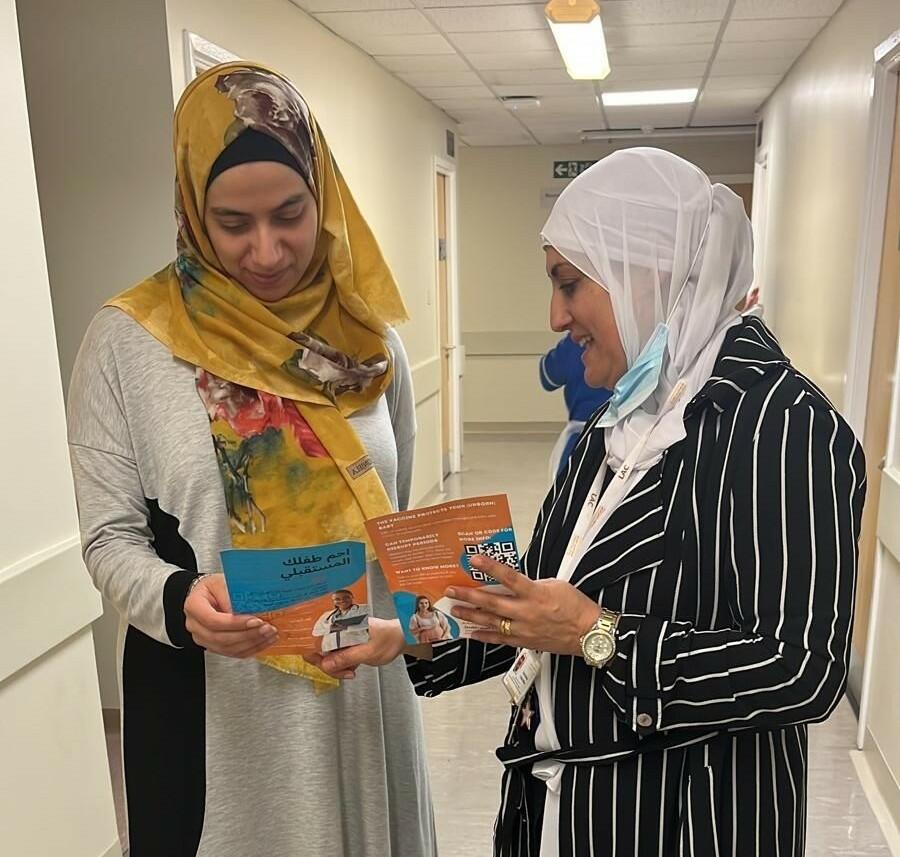
A new project will explore how storytelling can be better integrated into community and health systems to tackle health inequalities.
ReCITE, led by Liverpool School of Tropical Medicine, will work with local communities to address misinformation and build trust in relation to health prevention measures such as cancer screening and childhood immunisation.
The project will address local health priorities in some of the most deprived areas of Merseyside, linking people with lived experience with health providers, community champions and storytellers to develop immersive, multi-media stories designed to build confidence in preventative public health interventions.
Researchers will also convene events that bring together health, community and arts sector groups, help to scale up innovative Community Innovation Teams across Merseyside, and develop a toolkit to support future interventions to deliver a more integrated creative health approach.
ReCITE builds on LSTM’s previous work leveraging learnings from Kenya to establish Community Innovation Teams in Liverpool, able to use local data to identify problems and develop local solutions to issues such as low vaccine uptake in under-served communities in Liverpool.
The project has been awarded £2.5m from UKRI as part of the programme Mobilising Community Assets to Tackle Health Inequalities, led by the AHRC, which aims to improve health through access to culture, nature and community.
All of the funded projects seek to tackle entrenched and longstanding health inequalities in Britain’s poorest communities by exploring how health systems can collaborate more effectively with communities.
Professor Miriam Taegtmeyer, project lead from Liverpool School of Tropical Medicine, said: “We are pleased to have this opportunity to bring creative storytellers together with local communities, health professionals and researchers. ReCITE puts people with lived experience at the heart of tackling health inequities, harnessing the power of telling stories that resonate with people to catalyse change and advocate for under-served communities.
“Utilising the research expertise at Liverpool School of Tropical Medicine and our partner universities, we will test and evaluate the effectiveness of this creative health approach as a way to improve health outcomes.”
Led by LSTM, ReCITE will benefit from support of partners including the Infection Innovation Consortium: iiCON, University of Liverpool, Liverpool John Moores University, Edge Hill University, University of Bristol, Writing on the Wall, Capacity Development International and Collective Encounters.
AHRC Health Inequalities Programme Director Helen Chatterjee said: “The evidence is clear – intellectual stimulation, a sense of purpose, engagement in your community and a fulfilling social life are as important as diet, exercise and medical care when it comes to living a long and healthy life. Yet often public health interventions neglect this reality.
“These projects seek to improve the length and quality of our lives by making use of the rich cultural, artistic, nature and social resources that already exist within our communities. In this way, we can shape a healthier, happier Britain.”
Director of Community Health and Personalised Care at NHS England James Sanderson said: “We know that joining up care leads to better outcomes for people. When local partners – the NHS, councils, the voluntary sector and others work together, they can create better services based on local need and what matters to people. Harnessing community assets, finding the opportunities for connection, activity and purpose can support people to achieve good health and wellbeing outcomes.”